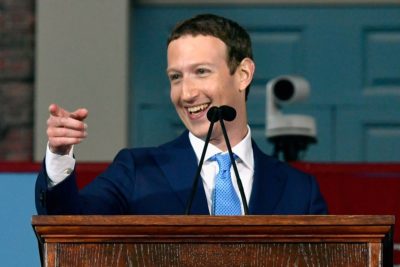Despite Facebook’s assertions about how much the company values privacy and protects its members’ personal information, its founder has a history of leveraging the site to collect personal information and use it to his advantage.
Facebook, initially called TheFacebook.com, was born into controversy in 2004, shortly after then Harvard student Mark Zuckerberg launched the site. A few months after it went live, three Harvard seniors accused Zuckerberg, who they hired to finish their social network site HarvardConnection.com, of stealing their concept for his new endeavor, according to Business Insider.
Cameron Winklevoss, Tyler Winklevoss, and Divya Narendra accused Zuckerberg of misleading them into believing he would help with their site, but said he strung them along and eventually left them hanging. When they read about TheFacebook.com in The Harvard Crimson, the school’s student news site, they were livid, and pressed the site to publish a story about Zuckerberg’s alleged scam.
After initial discussions with both the complaining students and Zuckerberg, the Crimson declined to publish a story about the accusations and notified both sides. But new accusations of fraud against Zuckerberg from another student – which turned out to be false – convinced the Crimson to move ahead with the story, which allegedly prompted the then 19-year-old Facebook founder to take matters into his own hands.
According to Business Insider:
Mark Zuckerberg was not content to wait until the morning to find out if the Crimson would include (the new) accusations in its story.
Instead, he decided to access the email accounts of Crimson editors and review their emails. How did he do this? Here’s how Mark described his hack to a friend:
Mark used his site, TheFacebook.com, to look up members of the site who identified themselves as members of the Crimson. Then he examined a log of failed logins to see if any of the Crimson members had ever entered an incorrect password into TheFacebook.com. If the cases in which they had entered failed logins, Mark tried to use them to access the Crimson members’ Harvard email accounts. He successfully accessed two of them.
In other words, Mark appears to have used private login data from TheFacebook to hack into the separate email accounts of some TheFacebook users.
It’s unclear whether lawmakers intend to question Zuckerberg about his alleged history of hacking Facebook members when the CEO and founder makes two separate appearance on Capitol Hill this week – one before a joint session of the Senate Judiciary and Commerce committees Tuesday and the other before the House Committee on Energy and Commerce on Wednesday.
Lawmakers demanded an appearance amid allegations Facebook allowed data analytics firms to gain access to 80 million or more members’ private information and social connections, information that was allegedly used to target folks on the platform with political advertisements. More recent revelations show the company’s “reverse-lookup” feature also makes it very easy for miscreants to harvest names, profiles, phone numbers and other information on user profiles.
Facebook has also been accused of helping to promote fake news, and serving as a hub for illegal activities, including terrorism and other atrocities.
At Tuesday’s hearing, senators will have the opportunity to grill Zuckerberg about Facebook’s problems, to seek answers about why the company left the public largely in the dark, and to probe whether the Facebook violated agreements with the federal government to protect users’ privacy.
Zuckerberg has largely avoided answering those questions. Facebook previously sent its lawyers to Congress to provide testimony, and Zuckerberg has remained relatively out of sight amid the flood of allegations in recent weeks.
Leave a Comment
COMMENTS POLICY: We have no tolerance for messages of violence, racism, vulgarity, obscenity or other such discourteous behavior. Thank you for contributing to a respectful and useful online dialogue.